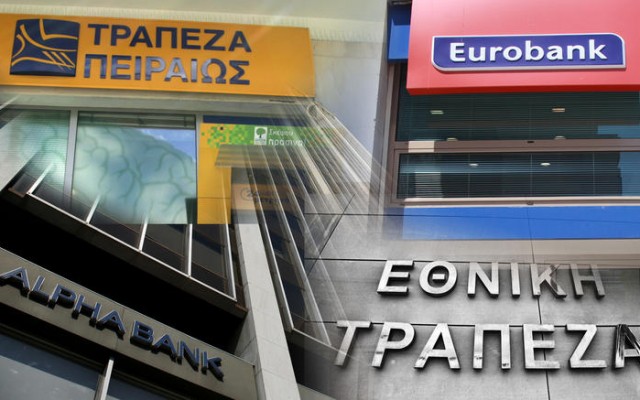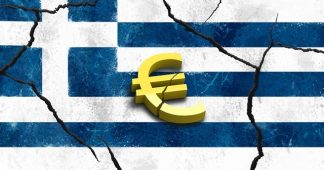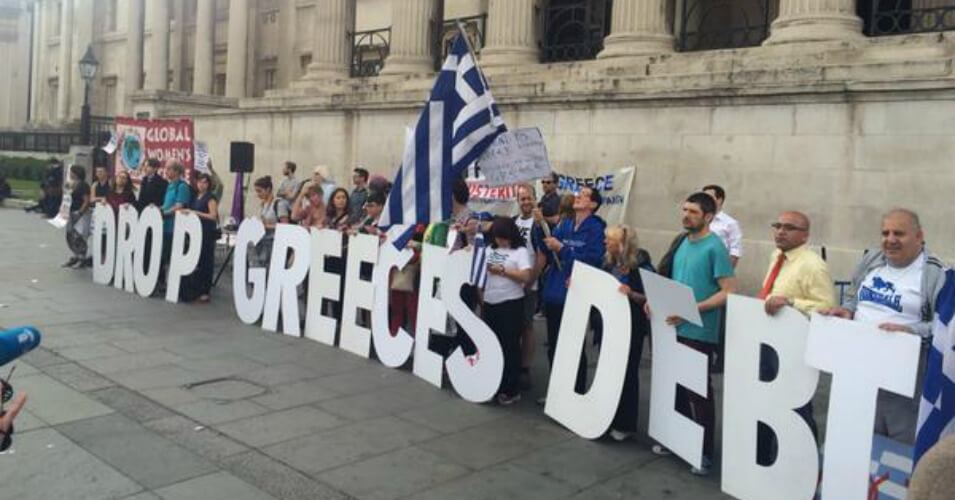Greek pensioner Dimitra says she never imagined a life reduced to food handouts: some rice, two bags of pasta, a packet of chickpeas, some dates and a tin of milk for the month. At 73, Dimitra – who herself once helped the hard-up as a Red Cross food server – is among a growing number of Greeks barely getting by.
After seven years of bailouts that poured billions of euros into their country, poverty isn’t getting any better; it’s getting worse like nowhere else in the EU. “It had never even crossed my mind,” she said, declining to give her last name because of the stigma still attached to accepting handouts in Greece. “I lived frugally. I’ve never even been on holiday. Nothing, nothing, nothing.”
Now more than half of her €332 (£296) monthly income goes to renting a tiny Athens apartment. The rest: bills. The global financial crisis and its fallout forced four eurozone countries to turn to international lenders. Ireland, Portugal and Cyprus all went through rescues and are back out, their economies growing again. But Greece, the first into a bailout in 2010, has needed three. Rescue funds from the European Union and International Monetary Fund saved Greece from bankruptcy, but the austerity and reform policies the lenders attached as conditions have helped to turn recession into a depression.
Greece crisis: Cancer patients suffer as health system fails
After arriving at the Theageneio specialist cancer hospital in Thessaloniki, Betty Semakoula was distraught to learn that her CAT scan was not going to happen that day.
“The machine is not working,” hospital staff told her.
“You should come back in four months.”
But Betty did not have that long.
“I had no choice but to get a private screening,” she said. “I paid €600 (£390) out of my own pocket.”
The 35-year-old, who founded an NGO that helps poor and homeless people in Thessaloniki, says her experiences suggest Greece’s health system is increasing comparable to those she witnessed while working in the developing world – rather than that of an EU country.
And from speaking to other patients and healthcare workers here, it is clear her story is broadly typical.
read more: http://www.bbc.com/news/world-europe-34131863
The Greek debt disaster isn’t just a financial issue, it is a humanitarian one
Greece’s agony drags on, as we’re reminded by remarks from Germany’s deputy finance minister Jens Spahn. Greece must not be granted a “bail in” that would involve creditors taking a loss on their loans, he said.
The International Monetary Fund wants Greece to be given relief on its debt, in effect having their capital value written down. But Germany opposes this, and it is not only Greece’s largest creditor. It also makes the biggest contribution to the European Stability Mechanism, the eurozone’s bailout fund, which has to make a further payment to Greece this summer to enable the country to keep meeting its obligations. A team of European negotiators, plus the IMF, are expected to go back to Athens this week to try to hammer out an agreement. But there is a chasm not only between the Greek government and its creditors, but between the different creditors.
The European negotiating team, in practice led by Germany, argue that the problem is not the size of Greece’s debts but the country’s slow growth and failure to reform. They point to the experience of Spain, which has carried through massive economic reforms and is now growing strongly, with 3.2 per cent growth last year. If Greece has its debts written down, this would not be fair on other European countries.











